Medium plastic soil Introduce
For residents and professionals across Islamabad Capital Territory, understanding the ground beneath our feet is often more crucial than we might realize. When we talk about "Medium Plastic Soil," we're delving into the very foundation upon which our city is built, our gardens flourish, and our infrastructure stands. Unlike a traditional university that offers academic programs, "Medium Plastic Soil" refers to a specific type of soil classification, vital for fields like civil engineering, agriculture, and even everyday gardening. It describes a soil with particular properties that influence everything from building stability to water drainage, directly impacting our daily lives and development projects within Islamabad.
In a rapidly developing urban center like Islamabad, knowledge of local soil conditions is paramount. While this isn't a physical institution you can visit for courses, understanding "Medium Plastic Soil" empowers local users, from homeowners planning a garden to engineers designing a new building, to make informed decisions. It represents a characteristic of the natural environment, providing insights into the geological makeup of our beloved capital. This article aims to shed light on what "Medium Plastic Soil" signifies for us, the local residents of Islamabad.
The provided address, H57F+XX3, Naval Anchorage Rd, Phase 1 Jinnah Garden, Islamabad, Pakistan, points to a specific geographical location within Islamabad. While "Medium Plastic Soil" is a general soil classification and not confined to a single point, this address indicates an area where such soil characteristics might be prevalent or have been identified through geological surveys.
Soil types, including "Medium Plastic Soil," are naturally occurring and can be found across various parts of Islamabad Capital Territory. The given address in Naval Anchorage Rd, Phase 1 Jinnah Garden, suggests a residential and potentially developing area where understanding the local ground conditions would be particularly relevant for construction and landscaping. Accessibility to information about soil types typically comes through geological maps, soil reports, and geotechnical surveys conducted for specific land parcels or development projects. For local residents and developers, this means that while you can't visit "Medium Plastic Soil" as a physical building, you can access information about its presence and properties by consulting local geological survey departments, civil engineering consultants, or by reviewing land development plans for your specific area. Understanding that such soil exists in areas like Jinnah Garden is important for anyone planning activities that interact with the ground.
While "Medium Plastic Soil" doesn't offer services in the traditional sense of a business or university, understanding its characteristics effectively "provides services" by informing critical decisions in various sectors. These indirect "services" are invaluable for anyone interacting with the ground in Islamabad:
-
Foundation Design Guidance: Knowing if the soil is "medium plastic" helps civil engineers and architects design appropriate foundations for buildings. Plastic soils can swell and shrink with changes in moisture content, which can affect structural stability. Understanding this property allows for the selection of suitable foundation types to prevent damage.
-
Agricultural Planning: For gardeners and farmers in and around Islamabad, understanding soil plasticity helps determine suitability for different crops, irrigation needs, and drainage requirements. Medium plastic soils can retain moisture well but may also become waterlogged if drainage is poor.
-
Drainage System Design: The plasticity of soil influences how water infiltrates and drains. This knowledge is crucial for designing effective drainage systems for residential areas, roads, and agricultural land, preventing water accumulation and erosion.
-
Road and Pavement Construction: The subgrade soil's properties significantly impact the stability and longevity of roads and pavements. Recognizing "medium plastic soil" allows for proper compaction techniques and material selection to ensure durable infrastructure.
-
Landscaping and Gardening Advice: Homeowners can use this information to choose appropriate plants that thrive in such soil conditions, and to implement suitable soil amendments for better plant growth and water management in their gardens.
-
Environmental Management: Understanding soil types is essential for managing environmental factors, such as preventing soil erosion, managing groundwater, and assessing sites for waste disposal or environmental remediation projects within the Islamabad Capital Territory.
-
Risk Assessment (e.g., Landslides): In hilly or sloped areas within Islamabad, the plasticity of soil can influence its susceptibility to landslides, especially during heavy rainfall. This understanding contributes to effective risk assessment and mitigation strategies.
"Medium Plastic Soil" has distinct features that make it important in various contexts, especially within the geological and environmental considerations of Islamabad:
-
Intermediate Plasticity: This soil type falls in the middle range of plasticity. Plasticity refers to a soil's ability to undergo deformation without cracking or crumbling. Medium plastic soils can hold their shape to some extent when molded, but not as rigidly as highly plastic clays. This characteristic is often determined by the Atterberg limits (liquid limit, plastic limit).
-
Moderate Clay Content: Typically, medium plastic soils have a moderate proportion of clay minerals, which are responsible for the soil's cohesive properties and ability to retain water.
-
Water Retention Capabilities: These soils generally have good water retention, which can be beneficial for agriculture in drier periods but can also lead to waterlogging if drainage is inadequate.
-
Swelling and Shrinkage Potential: While not as extreme as highly plastic clays, medium plastic soils can still exhibit noticeable swelling when wet and shrinking when dry. This cyclic volume change can impact structures built on them.
-
Bearing Capacity Considerations: For construction, the bearing capacity of medium plastic soils needs to be carefully evaluated. They can provide adequate support if properly compacted and managed, but their plastic nature requires specific engineering considerations.
-
Foundational Importance for Islamabad: Given Islamabad's diverse topography and rapid development, understanding the prevalence and behavior of "medium plastic soil" is crucial for sustainable urban planning and infrastructure development.
-
Interaction with Local Climate: Islamabad experiences distinct seasons, including monsoon rains. The behavior of "medium plastic soil" under varying moisture conditions, influenced by the local climate, is a key consideration for its practical implications.
Since "Medium Plastic Soil" is a natural classification and not a commercial entity, it does not have "promotions" in the traditional sense. However, for local users in Islamabad, the "special offers" are essentially the resources and information available to understand this vital aspect of our environment:
-
Public Geological Surveys: Government geological survey departments often publish reports and maps that detail soil types and geological formations across various regions, including Islamabad Capital Territory. These are invaluable public resources.
-
Environmental Agencies: Local environmental protection agencies or urban planning bodies may provide guidelines or data related to soil conditions, especially for development purposes.
-
University Research: Universities with departments in geology, environmental sciences, or civil engineering (like those in Islamabad) often conduct research on local soil types and their implications. Their published research can be a valuable source of information.
-
Consulting Geotechnical Firms: While these are commercial services, many geotechnical engineering firms in Islamabad offer initial consultations or publicly share general information about soil types and their engineering implications.
-
Online Educational Resources: Websites and educational platforms related to geology, civil engineering, or agriculture often provide general information about soil classification and properties, which can help local users interpret "medium plastic soil" in a broader context.
The "offer" here is the availability of knowledge that empowers informed decision-making regarding land use, construction, and environmental management within Islamabad.
As "Medium Plastic Soil" is a characteristic and not a university, there is no direct contact number. However, if you need specific information about soil conditions in a particular area of Islamabad, especially concerning construction or land development, you would typically contact:
-
Local Geological Survey Offices: For general geological and soil mapping data related to Pakistan and potentially Islamabad.
-
Civil Engineering Consultants / Geotechnical Firms in Islamabad: For site-specific soil investigations, reports, and recommendations. You can search online for these firms in Islamabad.
-
Capital Development Authority (CDA) or Islamabad Metropolitan Corporation (IMC): For land use planning, building codes, and potentially access to general geological studies relevant to urban development in Islamabad.
The provided address, H57F+XX3, Naval Anchorage Rd, Phase 1 Jinnah Garden, Islamabad, Pakistan, is a geographical coordinate. If you are specifically interested in the soil at this location, you would need to commission a geotechnical investigation.
For the residents and developers of Islamabad Capital Territory, gaining an understanding of "Medium Plastic Soil" is not merely an academic exercise; it's a practical necessity that profoundly impacts our safety, economy, and environment. While it isn't a university in the traditional sense, the knowledge derived from understanding this soil type serves as a silent, yet powerful, "educational institution" for anyone engaged in activities that interact with the ground.
Knowing that your local area might have "medium plastic soil" characteristics equips you with crucial insights. For homeowners in Jinnah Garden or other parts of Islamabad, it informs decisions about garden layouts, drainage solutions, and even potential considerations for house foundations. For local businesses involved in construction, landscaping, or urban planning, this knowledge is paramount for ensuring the stability of structures, efficient water management, and sustainable development practices.
By understanding the implications of "medium plastic soil"—its water retention, swelling potential, and bearing capacity—we can make more informed choices, mitigate potential risks, and contribute to the resilient growth of our beautiful city. It's about being aware of the natural environment we inhabit and leveraging that knowledge for the betterment of our community in Islamabad Capital Territory. This insight empowers us to build safer, more sustainable, and more productive spaces right here in our home.
Medium plastic soil Photos
Medium plastic soil Location
Medium plastic soil
H57F+XX3, Naval Anchorage Rd, Phase 1 Jinnah Garden, Islamabad, Pakistan
-
Medium plastic soil
H57F+XX3
 Explorer Group Of Colleges
Explorer Group Of Colleges
near Society Office
 Advance Institute of Health Sciences Islamabad
Advance Institute of Health Sciences Islamabad
Plot No
 Bahria University Health Sciences Campus Islamabad
Bahria University Health Sciences Campus Islamabad
H59Q+QCX
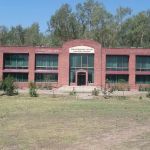 Mohi ud Din Islamic University Sihala Camp Office
Mohi ud Din Islamic University Sihala Camp Office
Mohi ud Din islamic University Union Council Road Sihala Bazaru060c H55W+M23u060c Sihala Islamabadu060c Naval Anchorage
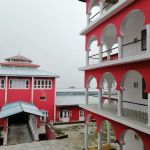 Mohi Ud Din Islamic University (MIU) Nerian Sharif
Mohi Ud Din Islamic University (MIU) Nerian Sharif
Union council road
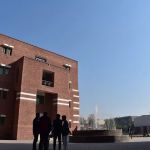 K Block, Department of Bioinformatics & Biosciences - CUST
K Block, Department of Bioinformatics & Biosciences - CUST
G5XP+323
 Islamabad Foundation Academy
Islamabad Foundation Academy
Street Number 2
 D Block
D Block
G5WM+M6C
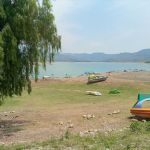 RAM Academy of Business
RAM Academy of Business
House #2 Street 14
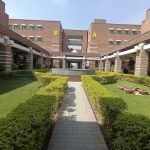 Capital University of Science & Technology (CUST)
Capital University of Science & Technology (CUST)
Islamabad Expressway
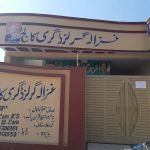 Ghazala girls degree college lohi bher islamabad
Ghazala girls degree college lohi bher islamabad
Unnamed Road
 Islamabad Model College For Girls lohi bhair
Islamabad Model College For Girls lohi bhair
H5M7+RJ8
Medium plastic soil Reviews
More University
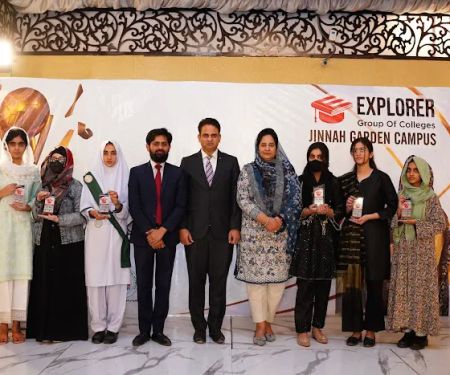 Explorer Group Of Colleges
4.0 (14 reviews)
Explorer Group Of Colleges
4.0 (14 reviews)
near Society Office, Block A Jinnah Garden, Islamabad, 45800, Pakistan
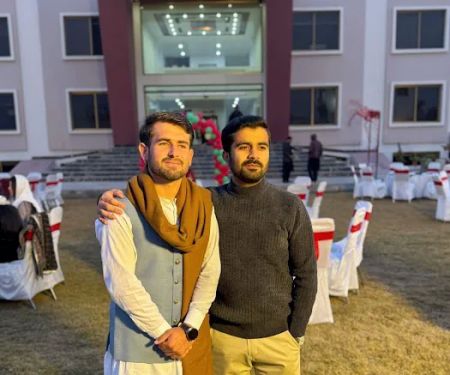 Advance Institute of Health Sciences Islamabad
4.0 (23 reviews)
Advance Institute of Health Sciences Islamabad
4.0 (23 reviews)
Plot No, 1 Japan Rd, Gagri, Islamabad, 44000, Pakistan
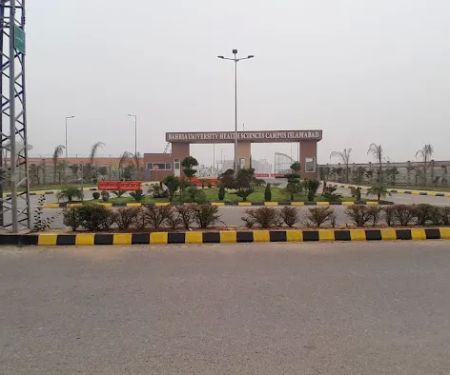 Bahria University Health Sciences Campus Islamabad
4.0 (12 reviews)
Bahria University Health Sciences Campus Islamabad
4.0 (12 reviews)
H59Q+QCX, Naval Anchorage, Islamabad, Pakistan
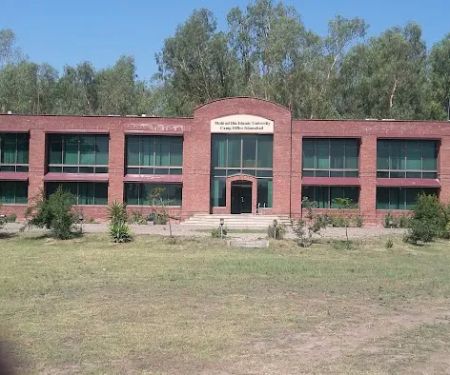 Mohi ud Din Islamic University Sihala Camp Office
4.0 (15 reviews)
Mohi ud Din Islamic University Sihala Camp Office
4.0 (15 reviews)
Mohi ud Din islamic University Union Council Road Sihala Bazaru060c H55W+M23u060c Sihala Islamabadu060c Naval Anchorage, Islamabad, Pakistan
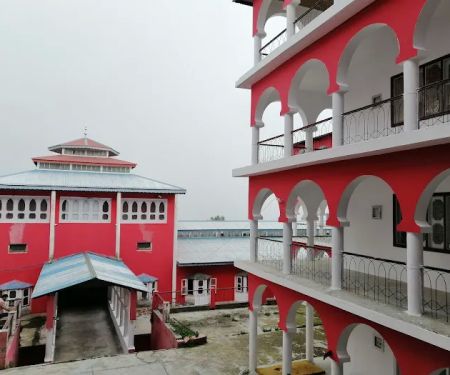 Mohi Ud Din Islamic University (MIU) Nerian Sharif
4.0 (86 reviews)
Mohi Ud Din Islamic University (MIU) Nerian Sharif
4.0 (86 reviews)
Union council road, Ghakar road, Naval Anchorage, H55W+M25, Sihala, Islamabad, Pakistan
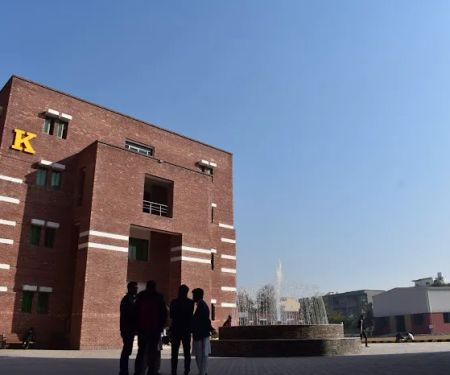 K Block, Department of Bioinformatics & Biosciences - CUST
4.0 (1 reviews)
K Block, Department of Bioinformatics & Biosciences - CUST
4.0 (1 reviews)
G5XP+323, Sihala, Islamabad, Pakistan
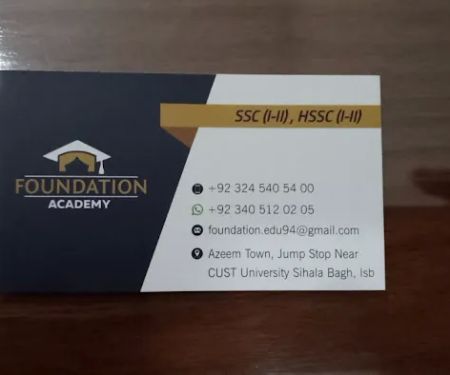 Islamabad Foundation Academy
5.0 (5 reviews)
Islamabad Foundation Academy
5.0 (5 reviews)
Street Number 2, Sihala, Islamabad, Pakistan
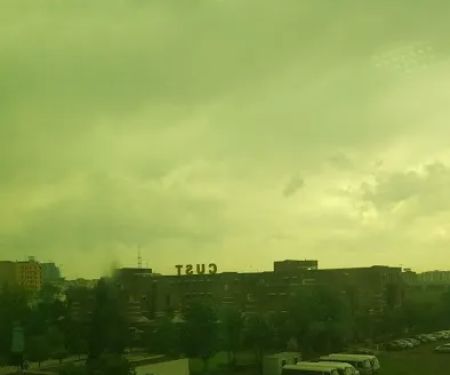 D Block
5.0 (3 reviews)
D Block
5.0 (3 reviews)
G5WM+M6C, Sihala, Islamabad, Pakistan
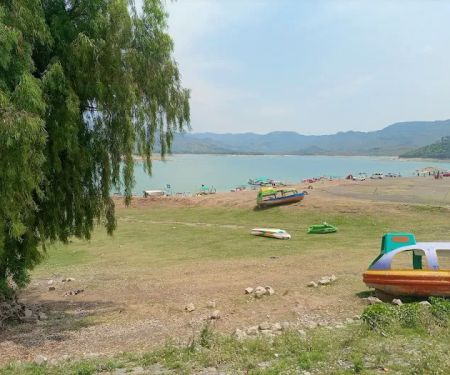 RAM Academy of Business
3.0 (2 reviews)
RAM Academy of Business
3.0 (2 reviews)
House #2 Street 14, Soan Gardens Block H Islamabad, 54100, Pakistan
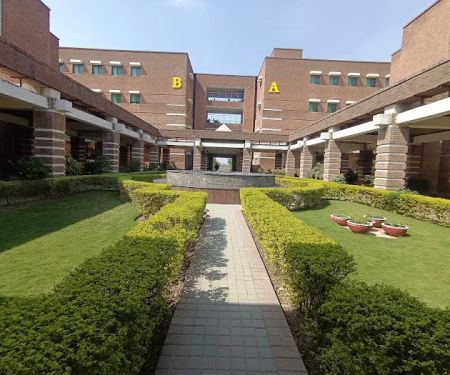 Capital University of Science & Technology (CUST)
4.0 (1022 reviews)
Capital University of Science & Technology (CUST)
4.0 (1022 reviews)
Islamabad Expressway, Kahutau060c Road Zone-V Sihala, Islamabad, Pakistan
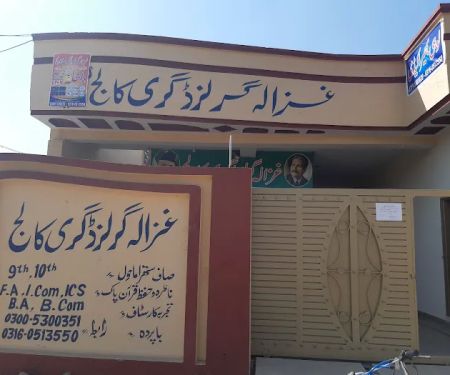 Ghazala girls degree college lohi bher islamabad
5.0 (3 reviews)
Ghazala girls degree college lohi bher islamabad
5.0 (3 reviews)
Unnamed Road, Lohi Bhair, Islamabad, 47000, Pakistan
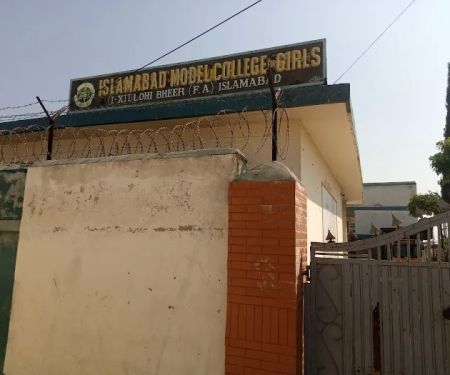 Islamabad Model College For Girls lohi bhair
3.0 (8 reviews)
Islamabad Model College For Girls lohi bhair
3.0 (8 reviews)
H5M7+RJ8, Lohi Bhair, Islamabad, Pakistan
Categories
Popular
 Jinnah Science & Technical College0.0 (0 reviews)
Jinnah Science & Technical College0.0 (0 reviews)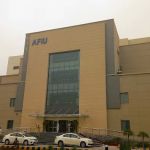 Armed Forces Institute of Urology4.0 (109 reviews)
Armed Forces Institute of Urology4.0 (109 reviews) Oxford institute of higher studies5.0 (1 reviews)
Oxford institute of higher studies5.0 (1 reviews) Govt Primary School, Chah Garab EMIS(34610123) گورنمنٹ پرائمری سکول، چاہ گارب0.0 (0 reviews)
Govt Primary School, Chah Garab EMIS(34610123) گورنمنٹ پرائمری سکول، چاہ گارب0.0 (0 reviews) Islamic Unniversity5.0 (1 reviews)
Islamic Unniversity5.0 (1 reviews) Primary school0.0 (0 reviews)
Primary school0.0 (0 reviews)Trending Blog Posts
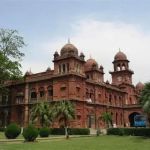 Most In-Demand Degrees in Pakistan 2025 – Top Fields for the Future
Most In-Demand Degrees in Pakistan 2025 – Top Fields for the Future Most In-Demand Degrees in Pakistan – What to Study in 2025 for a Future-Proof Career
Most In-Demand Degrees in Pakistan – What to Study in 2025 for a Future-Proof Career CSS 2025 Registration Deadline Announced by FPSC – Important Information for Aspirants
CSS 2025 Registration Deadline Announced by FPSC – Important Information for Aspirants Pakistan Education Census 2025 to Be Conducted in August: What to Expect
Pakistan Education Census 2025 to Be Conducted in August: What to Expect KP Inter Board Results to Be Announced District-Wise: What Students Need to Know
KP Inter Board Results to Be Announced District-Wise: What Students Need to Know CSS 2025 Registration Deadline Announced by FPSC: Key Details and Preparation Tips
CSS 2025 Registration Deadline Announced by FPSC: Key Details and Preparation Tips 